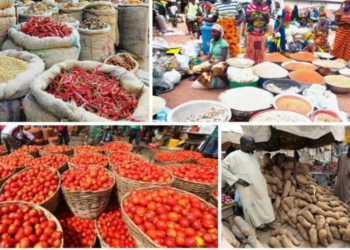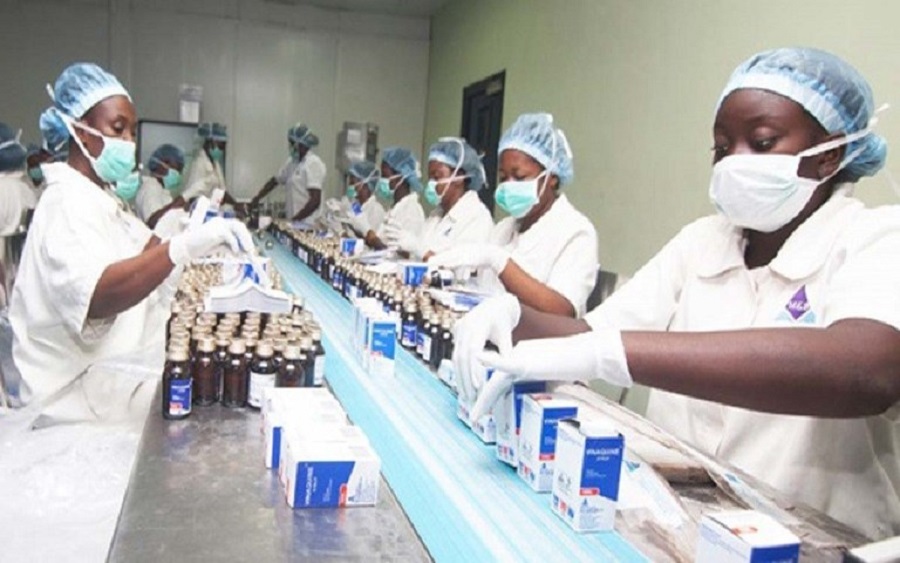When May & Baker decided in 2006 to deviate from its norm (pharmaceuticals) and venture into food processing, it seemed like the perfect move. At the time, the fast moving consumer goods (FMCG) market was full of opportunities and every player wanted in on it. Companies already in the FMCG expanded their product lines to accommodate more products while others like May & Baker, a Pharma company explored this as a new vertical.
Tiger Brands, a South African consumer giant had just taken over Dangote Flour as it seeks opportunities in Africa’s largest market. Honeywell also expanded its food division, opening up new lines that it hopes will compete.
Apparently, some of these companies had seen the billions raked in annually by Dufil, the makers of the popular Indomie Noodles. Surely, it is a market that could accommodate more players, well, so they thought.
For May & Baker, there was a model they could follow. After all, the likes of GlaxoSmithKline (GSK) was successfully combining its booming beverages lines with an equally successful pharmaceutical production outfit.
But the business clime has changed a lot since then. The fall in oil prices and the ensuing recession that hit Nigeria ravaged the economy in ways not seen since the eighties. Consumers, whom consumer food players had targeted, reduced their consumption expenditures.
Everyone started to feel the pinch. From Cadbury, to Unilever to Nigeria Breweries, they all reported massive declines in revenues and margins. Some had the balance sheet that could survive while also having a clear understanding of how to dig their way out of it. Some didn’t!
GSK, the big pharmaceutical that May & Baker modelled after, decided on a massive restructuring in line with orders from its Europe-based parent company. Its beverages arm, makers of the popular Lucozade and Ribena was sold off to Japanese maker Suntory in 2016.
Dangote Group bought back Dangote Flour for $1 while Honeywell scales back its investments in its food division. In light of the changing business environment, and also considering the fact that May & Baker’s Mimee Noodles was struggling to compete in a saturated market, it became imperative for the company to either do more to manage the brand, or sell it off completely.
We were thus not Surprised when May & Baker decided to sell off its food line to Dufil Nigeria Limited for ₦775m. The 100% acquisition was finalised on April 26th following the fulfilment of all necessary conditions, which include gaining the approval of both companies’ Boards of Directors, their respective shareholders, and the Nigerian Stock Exchange.
Why did it become necessary that the company take this decision? Let us consider that shortly.
Why the divestment?
Without a doubt, the noodles market in Nigeria has immense opportunities. This is considering the fact that lots of Nigerians enjoy eating the easy-to-cook meal. For instance, in 2016 the World Instant Noodles Association ranked Nigeria as the eleventh country in the whole world with the highest consumption rate of instant noodles. Now considering the facts that most Nigerians consume a lot of carbohydrates and also that the country’s population keeps expanding every year, it is safe to say that the demand for noodles can only keep rising. So if this is the case, why did May & Baker sell Mimee Noodles to Dufil?
The simple truth is that the Mimee Noodles brand could not compete. It literarily struggled to survive in a market dominated by the likes of Indomie, Chikki, Cherie, Supreme Noodles, etc. Indomie alone (which is owned by Dufil Nigeria Limited), controls more than 50% market share.
There are also about twenty different instant noodles brands that are readily available across Nigeria today, and the majority of them are struggling with about 50% market share. What this means is that Mimee Noodles had a lot of competition to contend with and it surely had no chances to win.
The competition affected the brand’s ability to generate enough revenue in order to supplement the parent company’s annual profits. This is despite the billions of naira that had been invested into it. While commenting on the reasons behind the recent divestment, May & Baker’s Head of Corporate Communications, Sandra Aduba, noted that the company ran at a loss for years due to poor sales of the product.
In the company’s 2017 financial year report, the food arm contributed ₦1,295,675,000 to a full year revenue of ₦9,352,636,000. This is less than the ₦2,111,738,000 that was realised in 2016. Prior to that, the company generated ₦2,032,042,000 from the subsidiary in 2015, and ₦1,951,444,000 in 2014.
But why was the food arm sold at such cheap price?
May & Baker plans to raise capital through the divestment to help with the actualisation of its refocused business model. In other words, the company is in need of funds, which explains why it readily sold the subsidiary to Dufil at ₦520 million less than the amount the subsidiary generated last year. As a matter of fact, the company is so cash-strapped that it is also planning to raise capital through the stock market later this year.
Bittersweet ending
In conclusion, it is interesting to see how May & Baker’s Mimee Noodles finally came to an end. However, in spite of the circumstances, this is a better ending compared to the unprofitability that has characterised its existence over the years. Hopefully, now, May & Baker will focus on the production of pharmaceuticals, something that it has successfully done for many decades now.























Mimee was my favorite. RIP to the best of them all.